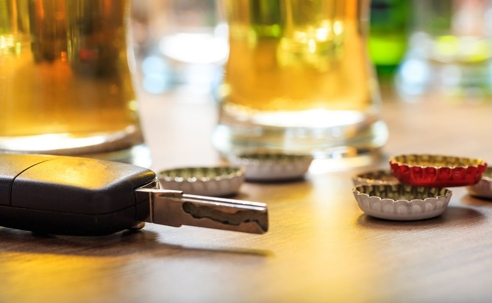In North Carolina, one of the most common criminal charges is Driving While Impaired, or DWI. While DWI may be one of the most commonly charged crimes in North Carolina it is also one of the most complex and misunderstood. This article will seek to explain some of the misinterpreted rules of DWI law, as well as answer some of the more common questions asked about DWIs.
- Driving Doesn’t Mean Driving.
Under current North Carolina law, in order to get a DWI you don’t actually have to be driving (i.e. vehicle in motion). Instead, currently the law says that the term “driver” and the term “operator” are interchangeable. So what does it mean to be the operator of a vehicle? The operator is the person who is in physical control of a vehicle, or in the driver’s seat, while that vehicle is in motion, or that has the engine running. This means that if you are asleep in the driver’s seat and the engine is running, you can be identified as the operator of the vehicle, and thus can be found guilty of a DWI. Common examples are people who are asleep in parking lots, on the side of the road, or are sitting in their car outside establishments.
- It Doesn’t Have to be a Car.
While most people think of DWI as dealing solely with cars and trucks, there are actually several other types of vehicles that you can be charged with DWI while operating.One of the more frequently seen alternate type of vehicle you can earn a DWI in is a boat, although these instances generally give rise to the charge of Boating While Impaired.Other examples of vehicles that may be surprising are; bicycles, the electric scooters located around many metropolitan areas (including Uptown Charlotte), golf carts, and more.In fact, North Carolina law defines a vehicle as:
- Prescriptions Count.
Another common mistake that people make that can lead to being charged with a DWI is driving while impaired by a doctor prescribed medication.Under North Carolina law, for the purposes of proving a DWI, there is no distinction between illegal drugs, alcohol, and prescription medication.There is a distinction when it comes to sentencing, that a prescription was taken as prescribed and is a mitigating factor.However, when it comes to the actual charge, there is no difference.You can be charged with a DWI after having taken your doctor prescribed medications.
- Public Vehicular Area.
You don’t actually have to be driving on the highway or a road to get a DWI.In order to be convicted of a DWI, the state only has to prove that you were driving on a public vehicular area, or PVA.A PVA is any area where the public is allowed to drive. Some common examples of this are; a boat ramp, parking lots, a drive thru, and parking decks, among others.If it is open to the public to drive on, the police can charge you with DWI there.If you are driving on private property, you can NOT be charged with a DWI.
- You Can Lose Your License. . . Twice.
Most people know that when you are convicted of a DWI, the DMV revokes your full license.What many people don’t know is that the DMV can actually revoke or suspend your license before you are even convicted.Several different events can lead to the DMV suspending your license before you have even been heard by the court, including, a refusal to give a breath or blood sample, providing a breath sample over the legal limit (.08), or providing a blood sample that comes back over the legal limit.It is important to know that if you gave a blood sample, the DMV will not suspend your license until after the results have returned.
These are just a few of the many complex rules that come with DWI law and a significant factor as to why it is so important to get legal representation, and to do so quickly. If you have been charged with DWI/DUI in North Carolina, contact one of our Criminal Defense attorneys today.

